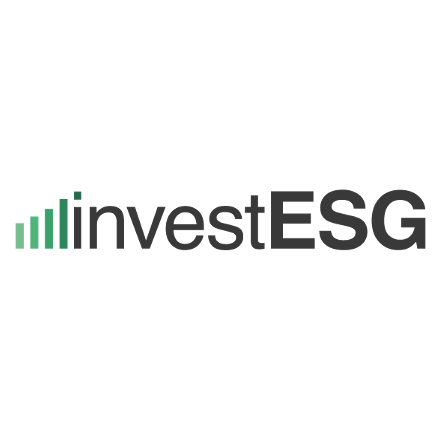

© Victor van Hoorn
INTERVIEW with Victor van Hoorn, the Executive Director of Eurosif, the European Sustainable Investment Forum. investESG.eu: We have seen a lot of recent activity in the area of non-financial reporting and sustainable finance disclosure by companies and investors. What is your observation?Victor van Hoorn: "Currently non-financial reporting by many companies does not provide investors with the necessary information. Both from a compliance perspective to comply with the SFDR and EU Taxonomy, and also from an investment perspective, investors need better information on important ESG drivers. A lot of market participants put hope into the revision of the NFRD. I am rather cautious as it will still take some time to be finalized. NFRD will probably spell out the main principles and our expectation is that EFRAG will get the mandate to develop the detailed requirements for climate, biodiversity, social issues and other ESG issues." investESG.eu: How are the lack of data and increasing disclosure requirements handled by the market until all regulations will be in force?Victor van Hoorn: "What we have actually observed in the market is evidence that investors, as well as benchmarks and data providers, already now request specific information from companies pertaining to SFDR for example. They present companies with requirements from their clients and users. It will be interesting to see in the transitional period before the NFRD is revised how much of the demand for better data can be met by market mechanisms." investESG.eu: Investors and asset managers will probably start asking for data related to the indicators defined in the SFDR RTS also.Victor van Hoorn: Yes, we have already seen evidence of that. Investors and ESG data provider already ask companies for this kind of data. Especially if companies are selected to be included in indices, they are more willing to capture and provide the necessary data. When a sizeable number of shareholders are requiring this information companies will have to deliver. One of the most interesting developments is that this also applies to non-European companies. We have seen that companies in the U.S., Japan or Australia have been asked to provide information on the indicators. Market pressure is quite strong in this area. investESG.eu: Do you think that the SEC will follow and work towards alignment with EU regulation?Victor van Hoorn: "I expect the SEC will also require a high level of transparency on investment funds but I would be very surprised if they followed the same logic of the principal adverse impact indicators as defined by the EU. I hope so but I am realistic, and I would be very positively surprised." investESG.eu: One of the key concepts of sustainability is “Double Materiality”. How do you see this concept evolving in the UK and US?Victor van Hoorn: "The approach of the Anglo-Saxon world is very much focused on financial materiality and enterprise value. The EU approach with double materiality is a different one. That’s why I expect the SEC to follow the first approach." investESG.eu: The focus on TCFD and IFRS seems to be the UK/US way to tackle the ESG challenges with a strong focus on climate. The EU approach seems to be more advanced. How do you see this?Victor van Hoorn: "The EU approach is in terms of objective more ambitious. I was actually quite disappointed that the IFRS foundation stuck with their initial plans outlined last year and that they did not change any major points after consulting stakeholders. I am not sure if the IFRS is even open for a discussion on double materiality. Focusing on financial materiality only and climate onlyand other issues later is not a holistic approach. We all accept that double materiality and particularly sustainable impact materiality is much more challenging to define. However, if you do not aim for this from the start it is questionable whether the framework is still relevant in 10 years when sustainability problems will be even more serious. Honestly, I have my doubts." investESG.eu: If we take the last two years and measure the speed at which developments started to move we might indeed expect a totally different discussion ten years down the road. Are we on the right track and fast enough. Victor van Hoorn: "Essentially, we have to realize that negative externalities will have to be priced in and with a focus on financial materiality we do not capture the total costs to society. We would just never know these costs. But we need more transparency about these costs and investors should know about them and take them into consideration. If we miss this important part, we are essentially shooting ourselves in the foot."Victor, thank you for sharing your view with investESG.eu. brief bioVictor van Hoorn is the Executive Director of Eurosif, the European Sustainable Investment Forum, the leading pan European Sustainable and Responsible Investment association advocating for a more sustainable financial system. It works as a partnership of European national Sustainable Investment Forums (SIFs). SIF members include institutional investors, asset managers, index providers and ESG research and analysis firms totalling over €8 trillion of assets under management, as well as other stakeholders such as NGOs, trade unions, think-tanks and philanthropic foundations. Eurosif is also a founding member of the Global Sustainable Investment Alliance, the alliance of the largest SIFs around the world.Prior to Eurosif, Victor was Head of Financial Services at Hume Brophy, a leading EU public affairs consultancy, advising asset managers and asset owners on their engagement with EU policymakers. In that role he closely followed the EU sustainable finance since its inception.Victor is and attorney-at-law admitted to the New York and Amsterdam bar. He holds the French and Dutch citizenship. Eurosif aboutEurosif is the leading European association for the promotion and advancement of sustainable and responsible investments making a measurable contribution to long term EU and international sustainability goals.
Published by
 investESG
investESG
 investESG
investESG

